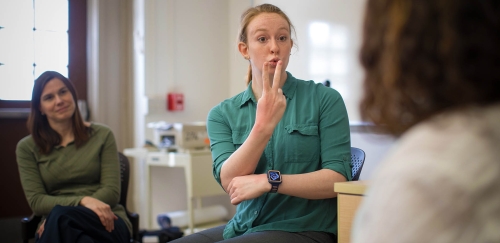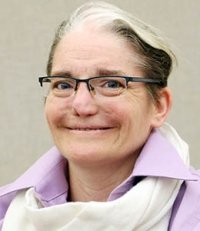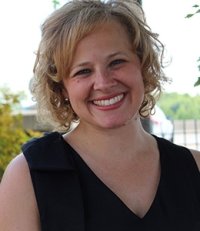The practicum experience for Interpreter Training students is one that provides opportunities to observe and participate in major activities required of professional interpreters today.
This practicum is an integral part of the Bachelor of Science degree program in ASL/English Interpreting at Bloomsburg University. The experience provides the student with the opportunity for carrying out professional responsibilities under appropriate supervision, direct observation and modeling of effective interpretation.
Each practicum experience shall be collaboratively developed and documented by the university supervisor, mentor and student. All practicum settings shall be conducted in sites equipped to provide the application of concepts learned through university coursework.
These experiences should enhance and extend the experiences provided throughout the program. The practicum provides experiences with varied groups across the life-span, various language preferences, and various service-delivery models reflective of current practices in the profession.
Philosophy
Bloomsburg University is committed to the preparation of interpreters of high quality. The development of quality for beginning interpreters is a “team” process. The competencies developed by practicum students during their practicum are the outcome of a cooperative endeavor between the practicum mentor, university supervisor, and practicum student. The emphasis of the interpreting practicum experience is on developing broadly educated individuals who are knowledgeable, skilled and professional in a variety of interpreted settings.
Requirements
Coming soon
GENERAL OBJECTIVES OF THE INTERPRETING PRACTICUM
To provide the student with professional experiences and competencies under the full-time supervision of certified professionals in a variety of settings.
To provide experiences for understanding of the practical realities, working conditions and professional responsibilities of practicing interpreters.
To provide feedback for the interpreting student through continuous evaluation, skill-based feedback, task modeling and guidance by cooperating supervisors and mentors.
To provide opportunities for developing self-direction, professional interests, attitudes, ideas, and techniques of interpreting through self-evaluation.
To provide experiences for observation and participation in professional activities related to interpreting such as: RID meetings, NAD meetings, interpreting workshops, and social activities where Deaf people are present.
To provide experiences to the interpreting student in recognition of and fostering of individual and cultural differences found among the clientele they will be serving.
To provide opportunities for the interpreting student to become aware of the importance of human relations as they apply to Deaf consumers, hearing consumers, and members of the community at large.







